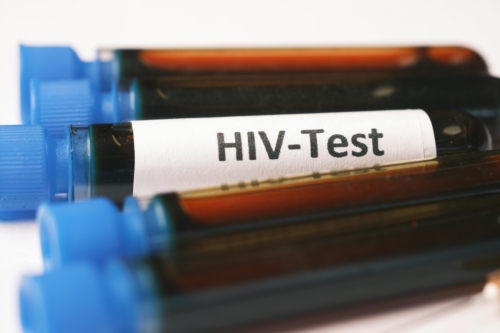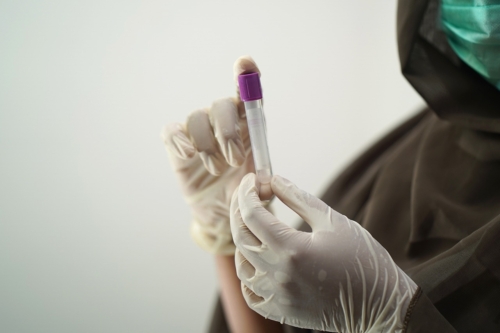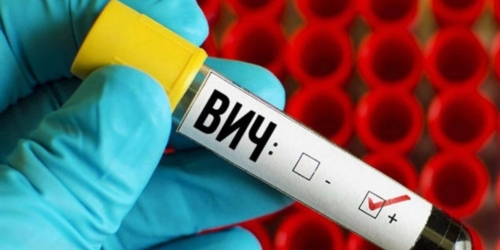Jail for man who infected girlfriend with HIV
A man who infected his girlfriend with HIV during unprotected sex – after telling her repeatedly he did not have the disease – has been sentenced to 3 1/2 years in prison.
Sentencing notes obtained by the Sunday Star-Times show the man insisted he did not have HIV even after his girlfriend noticed a letter from the infectious diseases centre, a nurse spoke to her about it, and one of his former partners sent her a warning text message. He continued to deny having HIV after the girlfriend discovered she had been infected.
In sentencing on October 16, Judge L Moore of Waitakere District Court told the man: “You blatantly lied to this trusting woman so that you could continue to have unprotected sex with her, knowing full well that by doing so, you were putting her at risk of a terrible outcome.”You cared for her so little that you were prepared to gratify yourself at a risk to her life. In a way, the fact that this was a long-term relationship, the fact that this woman loved and trusted you, makes it far worse than if it were just a casual fling with somebody who was just out for a bit of sexual adventure. The breach of trust here is very great.”
The man was sentenced to 3 1/2 years’ prison for causing grievous bodily harm to the woman, and a concurrent six months for criminal nuisance. The man and woman cannot be identified and other details about their relationship and where they live have also been suppressed.
The sentencing notes say the man was diagnosed with HIV in 2005 and staff at the infectious diseases centre warned him “in plain terms” that because of the disease he should always use condoms.
The man was going through a difficult time at that point, the notes say, as his marriage (which had produced two children) had come to an end. The man moved in with his victim as a boarder but their relationship became physical and they were together for at least two years.
This was the first long-term relationship the woman had been in, Judge Moore said. It seems the couple used condoms for a time before the woman went on the contraceptive pill. From that point they had unprotected sex, which the man preferred.
Early this year the woman started to feel unwell, and was diagnosed with HIV.
The judge said that the woman’s victim impact statement shows that she has needed counselling, “and will continue to suffer… Her life can never be the same because of this infection that you gave her.”
The judge said that the woman would have to go on medication and was now at a much higher risk of a range of diseases and conditions.
He praised her generosity and kindness, saying she had not wanted the man to go to jail and had intervened on his behalf to help him get bail.
“She wants you out in the community bearing some responsibility, financial and otherwise, for the children that you fathered,” Judge Moore said. “I am moved by the generosity of your victim’s approach.”
Judge Moore said the man was “weak” rather than predatory, but condemned him for lying to his girlfriend about his HIV status.
The man’s actions had also cost the community, because it would have to pay for the woman’s treatment, Judge Moore said.
“But that is money. People are more important than money and what you did to her was terrible.”
It is believed just seven men have been convicted in similar cases in New Zealand; this is the first to come to light since 2005.
In 1994, Kenyan musician Peter Mwai was sentenced to seven years’ prison for having unprotected sex with five women, and infecting two. He died shortly after being released in 1998.
A 2005 case involving Justin Dalley, 36, of Lower Hutt, who kept his HIV status secret from two women he slept with, set a significant legal precedent: that HIV-positive people could choose not to tell sexual partners about the virus, as long as they wore a condom.
Train driver Glenn Mills is now before the courts on 28 charges relating to 14 people he is accused of deliberately infecting with HIV.





Editorial comment
A 34 year-old HIV-positive New Zealand citizen originally from the Democratic Republic of Congo has been sentenced to three-and-a-half years in prison for grievous bodily harm with a concurrent six months for criminal nuisance. The charges stemmed from not disclosing his HIV status before having unprotected sex with an Auckland woman, who is now HIV-positive.
I reported on the man’s arrest in March, during which time the police went on a ‘fishing expedition’ for more complainants. It seems none were found. Interestingly, contrary to the media frenzy surrounding the bisexual Auckland man who currently faces 28 HIV exposure and transmission charges relating to 14 people, reporting on this case was extremely low-key. In fact, the man was sentenced on October 16th and this is the first news report I have seen about it.
Notably, the Sunday Star-Times article published today which reports the man’s sentencing does not mention any identifying characteristics of either complainant (which is usual) or defendant (which is rare outside of the Netherlands). It is possible that since the earlier report states they had a child together, this is for the protection of the child.
What is also interesting about the article is that it includes details from the sentencing notes of Judge L Moore of Waitakere District Court which provides some insight into how little the criminal justice system cares why someone living with HIV has not disclosed their condition to their long-term sexual partner.
This man was in serious – and I mean serious – denial, and yet the court imagines that the man “blatantly lied to this trusting woman” for no other reason than to “continue to have unprotected sex with her.” Since there is no transcript of the trial, or reporting of whether the man gave testimony or an explanation for his behaviour, I can only speculate that his non-disclosure was not solely to continue having unprotected sex.
In their brilliantly insightful article, Reckless Vectors: The Infecting ‘Other’ in AIDS Law, Heather Worth, Cindy Patton and Diane Goldstein write:
Disclosing that you are HIV-positive is not an easy task. It requires coming to terms with your own diagnosis and accepting it. Then it requires exposing one’s own fears and concerns and the ability to express one’s feelings. It is a task that requires a degree of trust that the response will not be negative or stigmatising (itself a difficult task since HIV-related stigma is also often internalised). Sharing this type of highly personal information also requires that a certain expectation of confidentiality or discretion can be relied upon. For many people HIV disclosure is not an event or a one-time conversation. It is a process that takes time and constant communication.
It is tragic that a case like this resulted in an HIV-positive diagnosis for the man’s partner and a prison sentence for the man. If only he had had more support from his HIV clinic – which knew of his mental health difficulties – perhaps both of these could have been avoided.
Finally, I’d like to quote from another great article, Taking the blame: criminal law, social responsibility and the sexual transmission of HIV, written by Matthew Weait in 2001, which I just read for the first time yesterday.